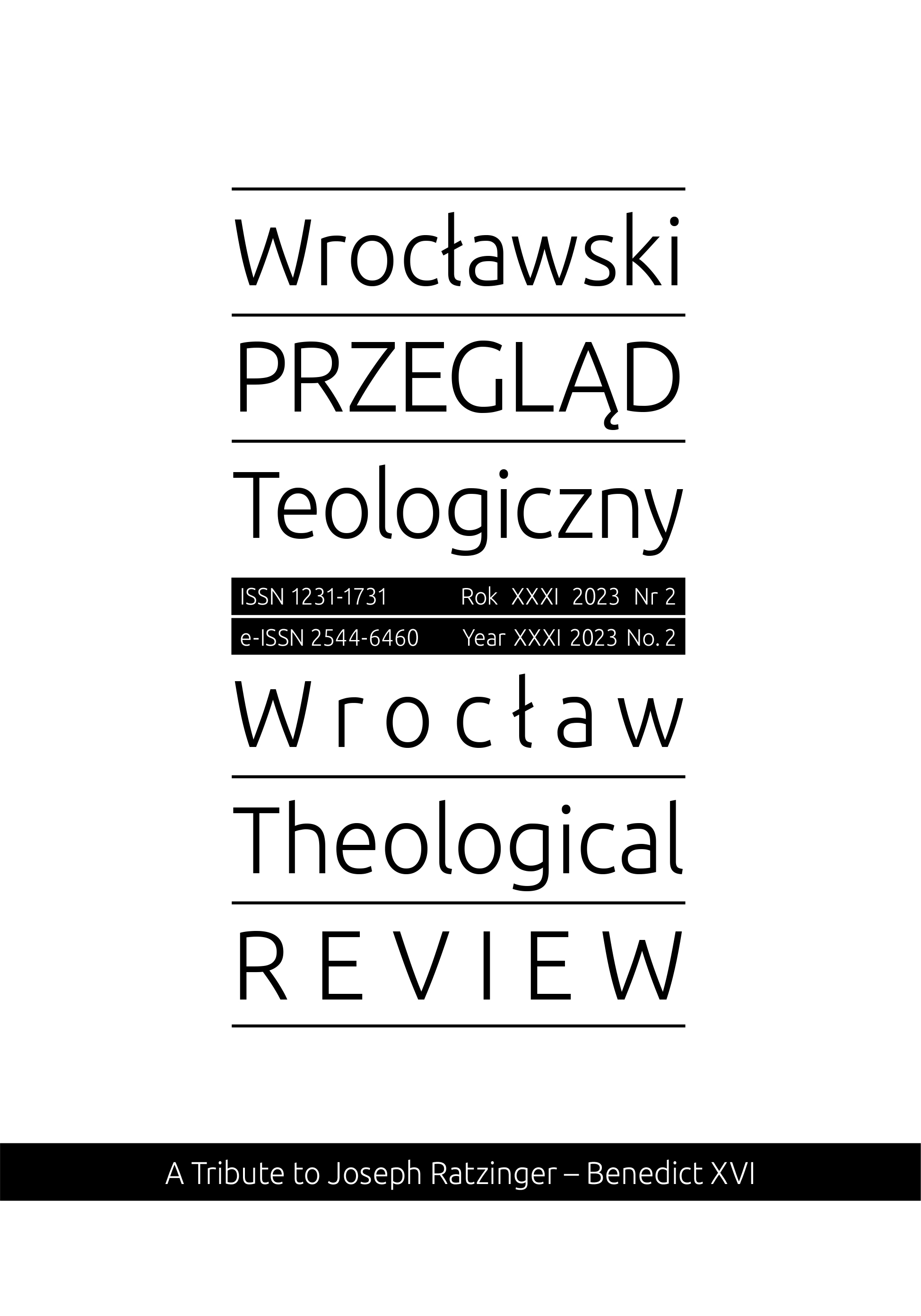Il mistero della Trinità secondo Joseph Ratzinger/Benedetto XVI
The Mystery of the Trinity according to Joseph Ratzinger/Benedict XVI
Author(s): Dariusz KowalczykSubject(s): Systematic Theology
Published by: Papieski Wydział Teologiczny
Keywords: Joseph Ratzinger; Benedict XVI; trinitarian theology; Trinity; name of God; una essentia tres personae; trinitarian community; unity vs diversity; absoluteness vs relativity; trinitarian heresies
Summary/Abstract: Joseph Ratzinger/Benedict XVI’s reflection on the Holy Trinity does not contain any ideas or expressions that could possibly take on a theological “career,” such as Karl Rahner’s fundamental axiom. Nevertheless, Ratzinger’s Trinitarian theology, with the points of reference he made and accents he suggested, forms an original synthesis. In the first section the author of this article accentuates that Ratzinger in his reflection on God often refers to the divine name revealed in the history of salvation. It is precisely the “name,” a synonym of a personal relation, that distinguishes faith in God from a philosophy of God. Ultimately, God revealed His name in three names: He Who Is—Father, Son, and the Spirit. The second section explains that Ratzinger considers the formula “una essentia tres personae” a paradox that expresses the unity of the absolute and the relative, the unity and the diversity. Thus, the truth of the Trinity reveals God, but also the whole of creation, which is a unity in diversity. The Trinitarian heresies grew precisely from the desire to eliminate a paradox that seemed to be a contradiction. However, the paradox present in theology is also present in the sciences, which is further clarified in section three. By way of an example one may point out the wave-like and corpuscular structure of reality that physics examines. In the last section the author insists that the whole of revelation is summed up in the words: “God is love,” which means that “God is not a solitude but a perfect community,” a Trinitarian community. Ratzinger points out that the New Testament does not speak of God as God “in himself,” but of God in a kenotic relation to someone: “God and Father of Jesus.” Even the Holy Spirit, who does not show us his face but hides himself under images of a dove, fire, wind is always the Spirit of the Father and of the Son. Thus, God is eternally the Trinitarian “being-with” and “being-for,” which is an invitation and a challenge for every Christian and for the Church.
Journal: Wrocławski Przegląd Teologiczny
- Issue Year: 31/2023
- Issue No: 2
- Page Range: 35-60
- Page Count: 26
- Language: Italian

